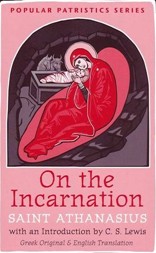How can we share in the joy of Christ’s birth?
I suspect that the readers of Lychnos are aware of how terribly commercialised Christmas has become. My answer to your question on how can we share in the joy of Christ’s birth is to meditate on the real meaning of Christmas, and to also allow the example of Christmas to change our mindset and the way we relate to one another. I will answer your question by using a sermon on the Nativity by Saint Gregory Palamas. This very spiritual saint put it as follows:
“The pre-eternal and almighty Word is now born according to the flesh, without home, without shelter, without dwelling, and placed as a babe in the manger, seen by men’s eyes, touched by their hands, and wrapped in layers of swaddling bands.”
St Gregory then refers to the devil who fell due to pride, and to how much destruction pride causes us. He says:
“The very Word of God from God emptied Himself in an indescribable way, came down from on high to the lowest state of man’s nature, and indissolubly linked it with Himself, and in humbling Himself and becoming poor like us, He raised on high the things below, or rather, He gathered both things into one, mingling humanity with divinity, and by so doing He taught everyone that humility is the road which leads upwards, setting forth today Himself as an example before men and holy angels alike… That is why God who sits upon the cherubim is set before us as a babe on earth… Having become flesh, He appears to our senses and can be seen by bodily eyes. He who defines all things and is limited by none is contained in a small, makeshift manger… He who possesses the riches of inexhaustible treasures submits Himself voluntarily to such great poverty that He does not even have a place at the inn; and so He enters into a cave at the time of His birth, who was brought forth by God timelessly and impassibly and without beginning… He who is by nature Lord of all is now ranked with the servants and enrolled with them (Luke 2:1-6), clearly making humble service to others no less honourable than the exercise of lordship, or rather, showing the servants as having greater honour than the earthly ruler.”
In summary then, the Church calls us to meditate on and come to appreciate the Incarnation, as St Athanasius put it, “God became man so that man might become god”. The Church also calls us to learn from and be inspired by the example of Christ and strive to be humble; to want to serve rather than to feel entitled and focus on our own needs.
At the birth of Christ the angels announced to the shepherds “peace on earth.” This peace, which “surpasses all understanding” can become our peace, and we can pass it onto others, if we live according to the Gospels. The following prayer expresses it nicely. “Lord, make me an instrument of Your peace… O, Divine Master, grant that I may not so much seek to be consoled as to console; to be understood as to understand; to be loved as to love; for it is in giving that we receive; it is in pardoning that we are pardoned; it is in dying that we are born again to eternal life.”
† Fr D. K.
Source: Lychnos December 2021 / January 2022

